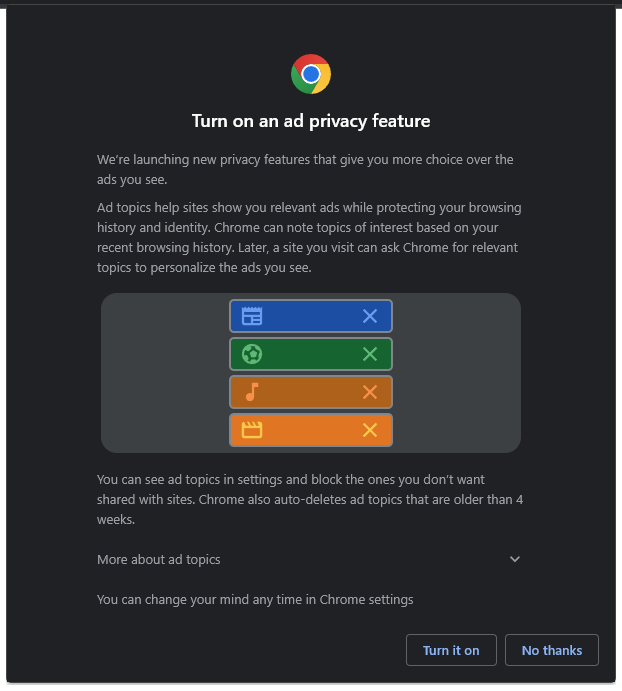this post was submitted on 25 Oct 2023
758 points (95.8% liked)
privacy
3316 readers
6 users here now
Big tech and governments are monitoring and recording your eating activities. c/Privacy provides tips and tricks to protect your privacy against global surveillance.
Partners:
- community.nicfab.it/c/privacy
founded 2 years ago
MODERATORS
you are viewing a single comment's thread
view the rest of the comments
view the rest of the comments

They won't be given the choice. The point is giving them some compromise in order to disable other tracking abilities from the browser. The big question with all of this isn't whether it improves on the user's privacy from the status quo. It's what happens when Google effectively monopolizes most of the access to advertising data. I'm not crying for third party ad companies, I think there might be some unforseen consequences for users down the road.
But how so? Just that Google will stop feeding them personal data the ways it currently does? Or that Chrome would actively work to block fingerprinting and trackers the way and blockers and Firefox do?
Because fingerprinting happens whether the user's browser 'allows' it or not.
Ok, so you mean most of what most companies get is fed from Google's tracking? So most would lose most of their data. But not that rely on Amazon/Meta/etc who are doing their own dirty work.
I think they'll do this.
Today everyone installs cookies and what not and tracks however they can. Once Google goes the Firefox route disabling and mitigating tracking abilities in Chrome, the only gateway to tracking data will be the data gathered by Google via Chrome and exposed via some Google-controlled API to third parties. So I think that eventually what most companies get fed by will be Google's tracking.
Yup. And probably.
So better than the status quo, unless you're a smaller ad company.